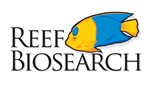

Spotlight on Climate Action
Committed to environmentally sustainable marine tourism
Operating within the World Heritage Great Barrier Reef Marine Park, the Quicksilver Group is committed to environmentally sustainable marine tourism and maintaining the health of the Great Barrier Reef.
We are acutely aware that we are all responsible for Climate Action and the need to be pro-active. This philosophy is core to our operational and environmental practices.
Here’s a brief overview of some of our current initiatives to address Climate Change.
Auditing and reducing Greenhouse emissions
- Quicksilver was one of the first companies to be certified by Ecotourism Australia’s Climate Action Program and has been certified as a “Climate Action Innovator”. What this means is that Quicksilver has proactively undertaken adaptations and emissions reduction, and is auditing and measuring our carbon footprint.
One of the most significant examples is the re-engining of our flagship wavepiercer, Quicksilver VIII resulting in a reduction of carbon. - “Green Office” program, which includes the purchase of green energy. Quicksilver Group audit and report total emissions to the federal government as part of the National Greenhouse Emissions Reporting scheme each year.
- Even the way we purchase goods and equipment is considered. A selection of “carbon neutral” wines and beers has been introduced.
Research; understanding climate change and impacts
- Quicksilver has been involved in collaborative innovative research projects aimed at developing mitigation measures to prevent coral bleaching.
- Trialling sewage treatment capability onboard reef vessel with a view to adopting the technology across the fleet. Our Green Island facilities operate a state-of-the-art tertiary sewage treatment plant.
- Trialling alternate energy sources.
Reef monitoring and reporting
- Support of reef monitoring and reporting programs such as “Eye on the Reef”, “Sightings Network”, “Bleach Watch” and “Reef Check” as well as our own internal site monitoring program which provide reliable reports regarding status of reef sites. Our environmental division, Reef Biosearch, established in 1986, has the longest logbook database of marine observations on the reef.
- Continuation of the Crown of Thorns Starfish and Drupella control programs in an effort to remove a stressor on the coral community.
Raising awareness - How can we all help?
Greenhouse gas emissions are produced from using electricity, from the fuel in our cars and from using products that require fuel and electricity. Increased concentrations of greenhouse gas emissions are responsible for climate change.
Here’s some tips from the Great Barrier Reef Marine Park Authority about how we can all help reduce greenhouse gas emissions and our “carbon footprint”:
- Switch to ‘green’ electricity produced from renewable sources by contacting your energy provider.
- Use energy efficient lights.
- Choose energy efficient products.
- Turn off electrical devices such as televisions when not in use.
- Turn off lights around the house.
- Refuse, reduce, re-use and recycle.
- Use less hot water.
- Dry your clothes the natural way, not in the dryer.
- Plant trees which take up carbon dioxide as they grow.
- Heat and cool your house efficiently.
- Drive less: car pool, use public transport, walk or cycle.
- Spread the word to others.
- Offset or neutralise your greenhouse gas emissions.
For more information on Climate Change and what you can do to help look after the health of the Great Barrier Reef, you can talk to one of our Marine Biologists onboard our reef cruises, or visit the Great Barrier Reef Marine Park Authority’s website at www.gbrmpa.gov.au
To preserve our ecosystems and marine environments we need to keep our freshwater flows strong.
We hope that by travelling with Quicksilver, our guests will become ambassadors for future conservation of the reef.










